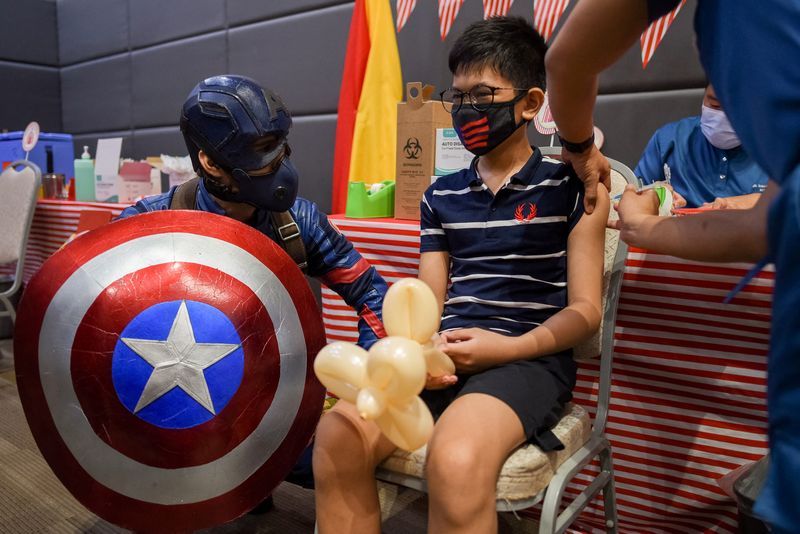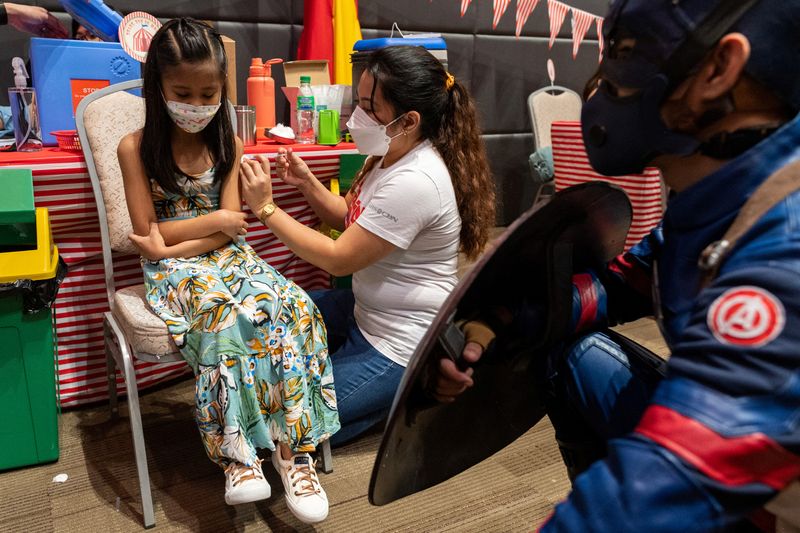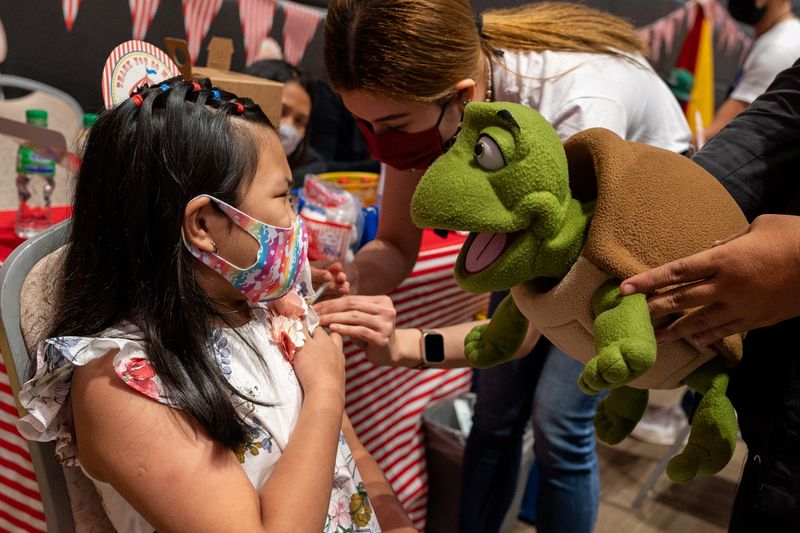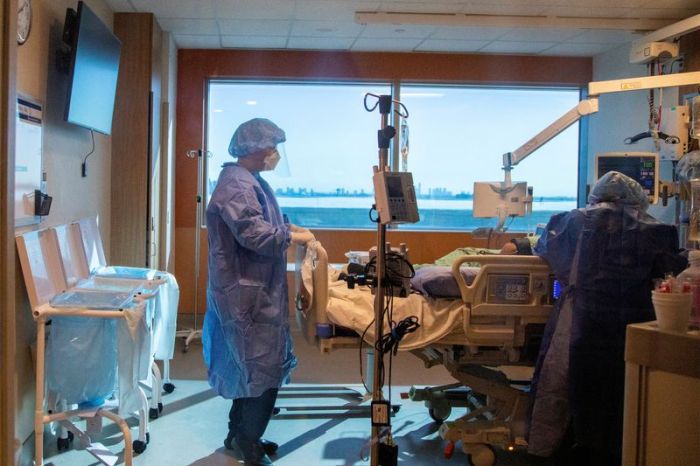MANILA (Reuters) – Ironman, Captain America, puppeteers and performers on stilts entertained children at a vaccination centre in the Philippines on Monday, part of a drive to boost its COVID-19 inoculation campaign among its youngest citizens.
Artists made swords and models from balloons as “superheroes” posed for pictures with children age 5 to 11 after they received their shots in the capital Manila.
The Philippines has vaccinated about half of its 110-million population, but many areas outside urban centres are still lagging far behind, complicating efforts to suppress fresh outbreaks of the novel coronavirus.
Children have been particularly affected by containment measures in the Philippines, which kept schools closed for nearly two years and required young people to stay indoors under some of the world’s strictest lockdown rules.
“He’s been at home for two years so he needs to go out and meet his friends, his classmates,” said Marissa Say after her son received a vaccine.
“After he completes all doses we can at least somehow feel safe and relaxed and he could go back to his normal life.”
The Philippines is seeking to inoculate 15 million children overall but vaccine hesitancy that pre-dates the pandemic has complicated the campaign. Other methods of encouraging child vaccinations have included administering them at a zoo.
There have been 3.6 million cases of COVID-19 in the Philippines so far, of which 54,000 were deaths. The Omicron variant spurred record case numbers on several days last month.
Parent Bernadette Cruz said child vaccinations will help the country get on with life.
“It’s very important for me to have my child vaccinated because it will help to have herd immunity in our country and it will help our current pandemic become endemic much faster,” she said.
(Reporting by Adrian Portugal, Writing by Martin Petty; Editing by Emelia Sithole-Matarise)





























